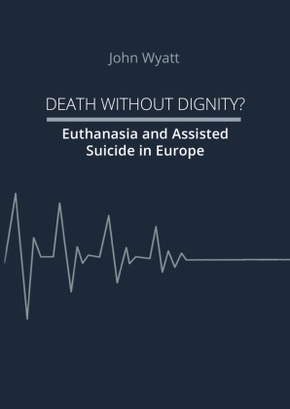
Death Without Dignity? - Euthanasia and Assisted Suicide in Europe
| Verlag | Nova MD |
| Auflage | 2023 |
| Seiten | 156 |
| Format | 14,8 x 1,2 x 20,5 cm |
| Gewicht | 206 g |
| Artikeltyp | Englisches Buch |
| ISBN-10 | 3985957169 |
| EAN | 9783985957163 |
| Bestell-Nr | 98595716A |
In this book, John Wyatt analyses the arguments in favour of euthanasia and physician assisted suicide and shows how unstable their foundations are. Instead, Wyatt suggests a more humane path forward: one that is both achievable and more honouring to the patient.
Leseprobe:
"Death, like the sun, should not be stared at." So wrote the philosopher François de La Rochefoucauld. But that's exactly what we shall be doing in this short book. Staring at the reality of death in our society, and at the arguments and controversies that surround the topic. What does it mean to die well? Is it best to die in control? To choose your own way out? Is it best to make a deliberate choice to end it all at the time and in the manner that you decide? Is suicide always an act of despair and hopelessness or could it be a responsible way to die? Or is there a better way to die? Does modern palliative care provide a better, a richer, a more humane option? These are not easy questions to confront. Writing this book has made me think about my own death and those of my loved-ones. What will happen in my last hours, days and weeks? Death and dying are not comfortable topics. They raise uneasy questions and anxieties, reminders of our own frailty and vulnerability, and fears abo ut the impending loss of loved-ones. I have found writing this book emotionally challenging but I am absolutely convinced we cannot avoid these vital topics.Just as we can't escape being confronted with death and dying in our personal lives, so also these topics have taken on growing importance in the public arena. Scarcely a week goes by without another high profile media story highlighting the inadequacies of end of life care in our health services, or the tragic story of an individual who committed suicide to escape the suffering and indignity of a terminal illness. Some of the real-life stories feature in the subsequent chapters.
